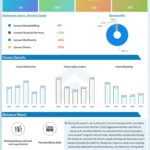Receive free Insolvency updates
We’ll send you a myFT Daily Digest email rounding up the latest Insolvency news every morning.
Ministers have proposed an overhaul of rules governing the UK insolvency sector after criticism of standards in the industry, but have stopped short of creating a new independent regulator.
The government on Tuesday will unveil plans to regulate insolvency firms rather than just individual practitioners, bringing them in line with the rules governing other regulated sectors such as audit and legal services.
The proposals means firms will be held accountable for failures in the insolvency process for the first time. Ministers have also proposed a new public register that will list all individuals and firms authorised to provide insolvency services and show whether they are subject to sanctions.
But the government has dropped plans for a single, independent watchdog. At present the sector in England, Scotland and Wales is overseen by four professional bodies that both police and represent their members.
A cross-party group of MPs recommended an independent regulator in a September 2021 report that criticised the insolvency sector as a “wild west” riven with conflicts of interests.
The group was at the time co-chaired by Conservative MP Kevin Hollinrake, who is now a business minister with responsibility for insolvency reform. Hollinrake’s department has now rejected the idea of an independent regulator for which his cross-party group once advocated.
Hollinrake, minister for enterprise, markets and small business, said that “there continues to be instances of poor conduct that have a direct impact on those closely involved”.
He added the reforms “reaffirm the government’s commitment to ensuring the insolvency profession is effectively regulated, with a regulatory framework fit for the future”.
The overhaul of the regulations in the industry comes ahead of what many practitioners predict will become a busy period for insolvencies, as businesses struggle during a period of high inflation and as consumer confidence is hit by the cost of living crisis. Many companies still have debts taken on during the pandemic.
But the insolvency profession has been subject to repeated criticism in the wake of scandals such as the insolvencies of electrical retailer Comet and bed manufacturer Silentnight along with the winding up of smaller businesses following the 2008 financial crash.
The Insolvency Service in June issued a reprimand — the first time such powers have been used — against the Institute of Chartered Accountants in England and Wales for regulatory failings related to restrictions imposed on Adrian Duncan, a practitioner based in London.
Company bosses often have broader concerns about the processes behind insolvencies, with practitioners holding extensive powers but — they complain — with insufficient oversight and punishment for poor behaviour.
The government’s decision to avoid a single regulator was criticised by one insolvency practitioner, who called it “madness”. A single regulator, they added, was “the sensible way to go”.
But Caroline Sumner, chief executive of R3, the UK’s insolvency and restructuring trade body, said she was pleased that the government had listened to the profession’s concerns about the idea.
“The proposals outlined seek to evolve our framework in a way which we hope will preserve the best of our current approach, while taking into account the changes in the demands on the framework and the profession over the last 40 years,” Sumner said.
The government said it would work with the four recognised professional bodies to improve the regulatory framework. But it added proposals for a single regulator will remain under review. The government said it would bring forward the necessary legislation for its proposals when parliamentary time allows.








